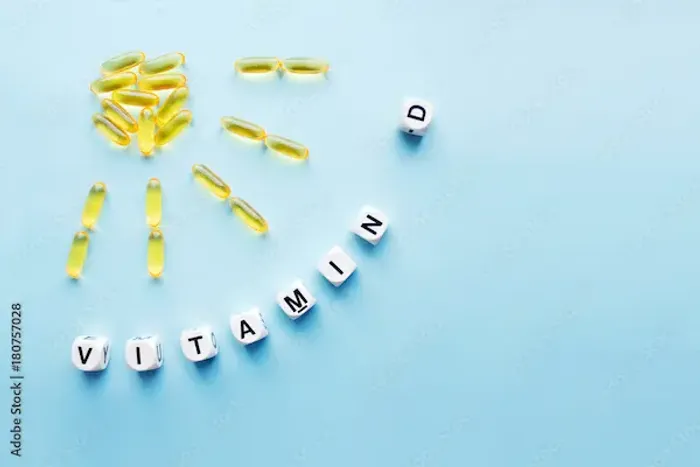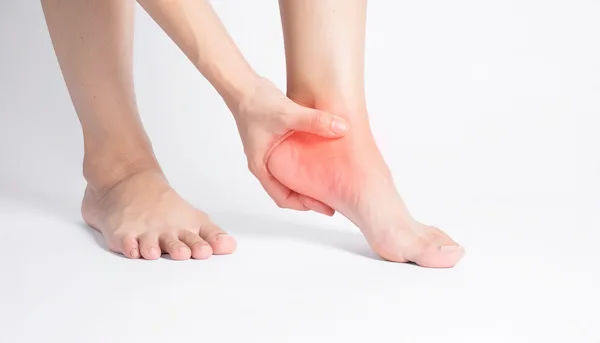Vitamin D Interesting Facts to Know
Explore fascinating facts about Vitamin D—how it boosts your immunity, supports bone health, and why deficiency is more common than you think. Learn how to maintain healthy levels through diet, sunlight, and supplements.

Written by Dr. J T Hema Pratima
Reviewed by Dr. Rohinipriyanka Pondugula MBBS
Last updated on 13th Jan, 2026

Introduction
Vitamin D is often called the "sunshine vitamin" because our bodies produce it when exposed to sunlight. But there’s much more to this essential nutrient than just soaking up the sun! Whether you're looking to boost your immunity, strengthen your bones, or simply understand how Vitamin D affects your health, here are some interesting facts you should know.
Why Is Vitamin D Important?
Vitamin D plays a crucial role in keeping our bodies healthy. Here’s why it matters:
Strong Bones & Teeth: It helps your body absorb calcium, which is vital for bone strength and preventing conditions like osteoporosis.
Boosts Immunity: It supports your immune system, helping you fight off infections.
Mood Regulation: Low Vitamin D levels have been linked to mood disorders like depression.
Muscle Function: It helps maintain muscle strength, reducing the risk of falls, especially in older adults.
How Do We Get Vitamin D?
Our bodies can get Vitamin D in three ways:
1. Sunlight: Just 10-30 minutes of midday sun exposure (without sunscreen) a few times a week can help your skin produce enough Vitamin D.
2. Food Sources: Fatty fish (salmon, mackerel), egg yolks, fortified dairy products, and mushrooms are good dietary sources.
3. Supplements: If you don’t get enough from sunlight or food, supplements can help fill the gap.
Who Is at Risk of Vitamin D Deficiency?
Certain groups are more likely to have low Vitamin D levels:
People with limited sun exposure (those who stay indoors, wear full-coverage clothing, or live in colder climates).
Older adults, as skin becomes less efficient at producing Vitamin D with age.
People with darker skin, as higher melanin reduces Vitamin D production.
Those with digestive disorders (like Crohn’s or celiac disease) that affect nutrient absorption.
Breastfed infants, since breast milk may not provide enough Vitamin D.
Signs You Might Be Deficient
Vitamin D deficiency is common but often goes unnoticed. Watch for these symptoms:
Fatigue and tiredness
Bone or back pain
Frequent infections
Slow wound healing
Hair loss
Muscle weakness
Mood changes (depression or anxiety)
If you experience these symptoms, consider getting a Vitamin D test to check your levels.
How Much Vitamin D Do You Need?
The recommended daily intake varies by age:
Infants (0-12 months): 400 IU (10 mcg)
Children & Adults (1-70 years): 600 IU (15 mcg)
Adults over 70: 800 IU (20 mcg)
Pregnant & breastfeeding women: 600 IU (15 mcg)
However, some people may need higher doses if they are deficient—always consult a doctor before taking supplements.
Can You Get Too Much Vitamin D?
Yes! While rare, excessive Vitamin D can lead to toxicity, causing:
Nausea, vomiting
Weakness, confusion
Kidney stones
High calcium levels
Stick to recommended doses unless advised otherwise by a healthcare provider.
Consult Top Specialists for Personalised Tips
Tips to Maintain Healthy Vitamin D Levels
1. Get Safe Sun Exposure: Spend 10-30 minutes in the sun a few times a week (avoid peak hours to prevent skin damage).
2. Eat Vitamin D-Rich Foods: Include fatty fish, fortified milk, eggs, and mushrooms in your diet.
3. Consider Supplements: If you’re at risk of deficiency, ask your doctor about supplements.
4. Get Tested: A simple blood test can check your Vitamin D levels—book one if you suspect a deficiency.
When to See a Doctor?
If you have symptoms of deficiency or belong to a high-risk group, consult a healthcare provider. They may recommend:
A Vitamin D blood test
Supplements in the right dosage
Dietary and lifestyle changes
Need Help? Book a Consultation Today!
If you’re concerned about your Vitamin D levels, Apollo 24|7 makes it easy to get expert advice. You can:
Consult a doctor online
Schedule a Vitamin D test
Get personalized dietary recommendations
Don’t ignore the signs—your bones, immunity, and overall health depend on it!
Conclusion
Vitamin D is more than just a nutrient—it’s a key player in your overall well-being. By understanding its importance, recognizing deficiency signs, and taking simple steps to maintain healthy levels, you can protect your health in the long run.
Consult Top Nutritionists
Consult Top Specialists for Personalised Tips
Dr. Sasikamalam
General Practitioner
1 Years • MBBS
COIMBATORE
Apollo Sugar Clinic Coimbatore, COIMBATORE
Ms. Bhavana Shetty
Dietician
7 Years • DDHN & Masters in Clinical Nutrition & Dietetics
Bangalore
Apollo Sugar Clinic, Seetha circle bangalore, Bangalore
Dr Sumanth R
General Physician
2 Years • MBBS
Bengaluru
PRESTIGE SHANTHINIKETAN - SOCIETY CLINIC, Bengaluru
Mrs Sneha P V
Nutritionist
10 Years • Master of science in Food and Nutrition
Bengaluru
Apollo Clinic, Sarjapur Road, Bengaluru
Dt. Ila Sharma
Clinical Nutritionist
18 Years • Master in food & Nutrition
Gurugram
VIPUL GREENS - SOCIETY CLINIC, Gurugram
Consult Top Nutritionists
Dr. Sasikamalam
General Practitioner
1 Years • MBBS
COIMBATORE
Apollo Sugar Clinic Coimbatore, COIMBATORE
Ms. Bhavana Shetty
Dietician
7 Years • DDHN & Masters in Clinical Nutrition & Dietetics
Bangalore
Apollo Sugar Clinic, Seetha circle bangalore, Bangalore
Dr Sumanth R
General Physician
2 Years • MBBS
Bengaluru
PRESTIGE SHANTHINIKETAN - SOCIETY CLINIC, Bengaluru
Mrs Sneha P V
Nutritionist
10 Years • Master of science in Food and Nutrition
Bengaluru
Apollo Clinic, Sarjapur Road, Bengaluru
Dt. Ila Sharma
Clinical Nutritionist
18 Years • Master in food & Nutrition
Gurugram
VIPUL GREENS - SOCIETY CLINIC, Gurugram



_0.webp)
